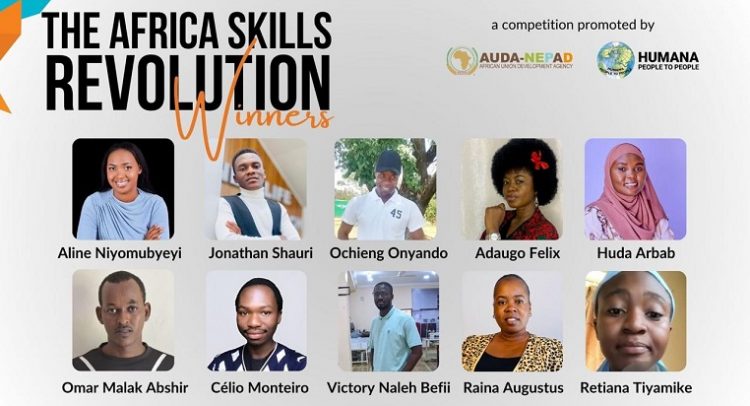The Africa Skills Revolution Competition, organized by AUDA-NEPAD and Humana People to People, has announced its winners, showcasing the transformative impact of Technical and Vocational Education and Training (TVET) on Africa’s socioeconomic growth.
Ten young entrepreneurs from seven countries took home the top honors, demonstrating exceptional skill, passion, and innovation in their respective fields.
The winners include:
Aline Niyomubyeyi (Rwanda)
Huda Arbab (Kenya)
Jonathan Shauri Kalibatha (Rwanda)
Omar Malak Abshir (Somalia)
Raina Augustus (Namibia)
Victory Naleh Befii (Nigeria)
Retiana Tiyamike Phiri (Zambia)
Adaugo Felix (Nigeria)
Célio Monteiro José (Mozambique)
Ochieng Benedict Onyando (Kenya)
Launched during the African Union Year for Education 2024, the competition aimed to reshape perceptions of TVET by highlighting its potential to equip young Africans with skills to drive change and tackle local and global challenges.
“We’re incredibly proud of all the participants,” said Luckson Soda, Director of DAPP Zimbabwe, Humana People to People’s delivery body. “Their projects reflect the creativity and innovation that TVET fosters.”
Symerre Grey-Johnson, Director of Human Capital and Institutional Development at AUDA-NEPAD, added, “These young people are driving progress in their communities, showing us what’s possible when they have the right opportunities.”
The Africa Skills Revolution initiative seeks to promote TVET as a powerful driver of progress, addressing misconceptions and undervaluation.
Through advocacy campaigns, surveys, and competitions, the movement aims to empower Africa’s youth to thrive professionally and contribute to sustainable development.
Humana People to People, with over 40 years of experience in TVET programs, has equipped thousands of young people with practical skills, fostering economic growth and community development. AUDA-NEPAD, as the African Union’s development agency, coordinates and executes priority regional and continental projects to promote regional integration.
BY Daniel Bampoe


